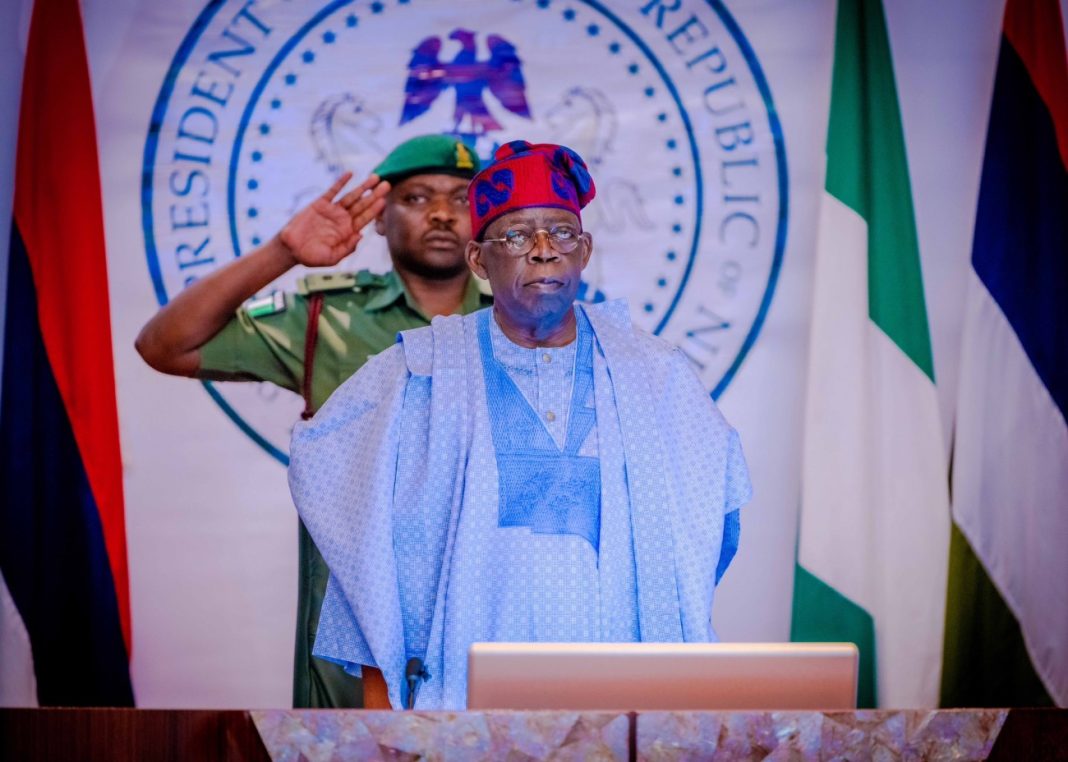ABUJA, Nigeria – Nigerian President Bola Tinubu disclosed the portfolios of his ministers on Wednesday, August 16, 2023.
According to details provided by Aso Rock sources to The Trent, 13 nominees have been designated as Ministers of State, with a few new ministries also being introduced.
Here are some of the notable appointments:
- Communications, Innovation And Digital Economy: Bosun Tijani
- Finance And Coordinating Minister Of The Economy: Wale Edun
- Power: Adebayo Adelabu
- Transportation: Adegboyega Oyetola
- Industry, Trade and Investment: Doris Anite
- Innovation Science and Technology: Uche Nnaji
- Women Affairs: Uju Kennedy
- Works: David Umahi
- Aviation and Aerospace Development: Festus Keyamo
- Federal Capital Territory: Nyesom Wike
- Defence: Muhammed Badaru
This reshuffle has sparked discussions regarding President Tinubu’s direction in his administration, especially with the creation of new portfolios and the noticeable absence of three ministerial nominees.
There are also murmurs in political circles regarding the potential ramifications of the Senate’s decision to withhold confirmation based on security checks.
The new Ministry of Marine And Blue Economy and Ministry of Arts, Culture, and Creative Economy have been created.
However, it was observed that three prominent names – a former governor of Kaduna state, Nasir El-Rufai; a former national women leader of the All Progressives Congress, Stella Okotete; and a ministerial nominee from Taraba state, Danladi Abubakar – were conspicuously absent from the list.
The Senate had earlier withheld the confirmation of the trio due to ongoing security checks.
Transparency Tug-of-War: Code of Conduct Bureau Shields Tinubu’s and Shetimma’s Asset Data
The Code of Conduct Bureau, CCB, has turned down a Freedom of Information, FoI, request from a national daily, PUNCH, to unveil the declared assets of President Bola Tinubu and Vice President Kashim Shettima.
In a formal request dated June 22, 2023, based on the 2011 Freedom of Information Act, The PUNCH sought specifics of the assets stated by the President and Vice President.
The correspondence, expressly titled “FOI request for details of President Bola Tinubu and Vice President Kashim Shettima’s assets,” was sent to the CCB Chairman, Isa Muhammed.
Though the CCB Chairman’s Office recognized the receipt of the request on June 26, the CCB did not adhere to the FoI Act’s stipulation that mandates disclosure of such details within a week. Forty-eight days later, the information remains undisclosed.
Veronica Kato, a communications representative for the CCB, did not reply to multiple attempts for comments by The PUNCH.
Deji Ajare, a prominent human rights attorney, condemned the CCB’s non-compliance. “The Freedom of Information Act underlines our democratic society’s fundamentals, emphasizing transparency, accountability, and public accessibility to information. The CCB’s reluctance to share the asset declarations disrupts this transparency and might arouse corruption suspicions,” he expressed.
Ajare further insisted on the CCB’s responsibility, stating that unveiling these details “will manifest its dedication to combatting corruption and promoting transparency at the governmental pinnacle.”
Conversely, public-interest attorney, Festus Ogun, pointed out the judiciary’s lackluster enforcement of the FoI Act. “While the Freedom of Information Act exists, the courts have unfortunately intimated that there’s no explicit legal obligation to make these assets public,” Ogun remarked.
Nonetheless, he underscored the ethical aspect, suggesting that the President and Vice President disclose their assets for the sake of transparency.
The issue raises significant questions about public transparency and the effectiveness of the Freedom of Information Act in a democratic setting.







